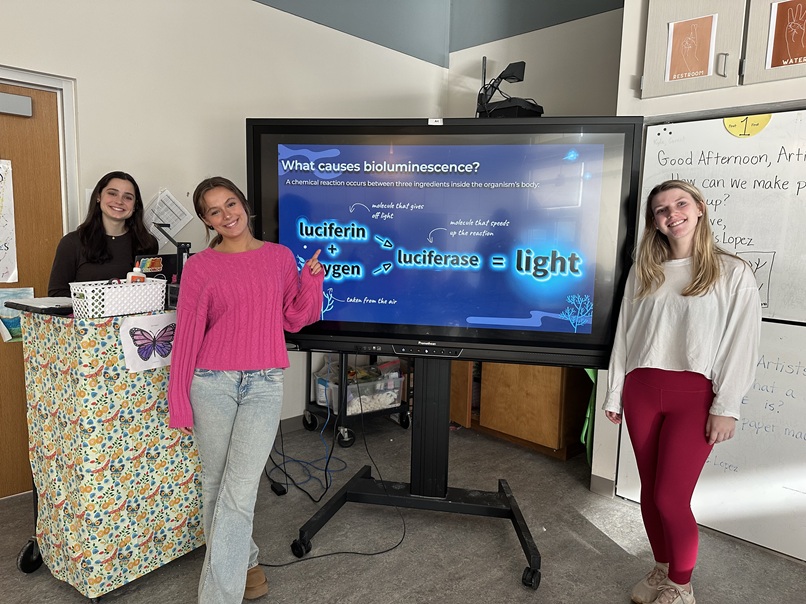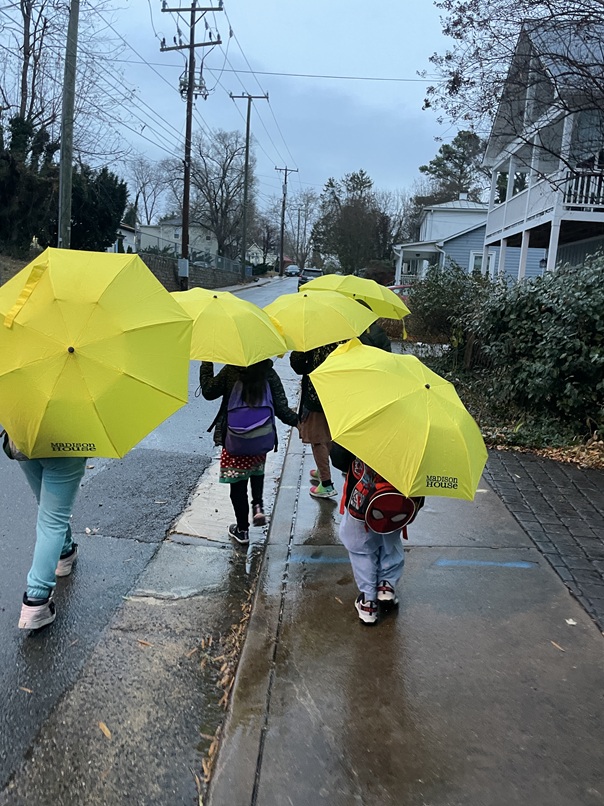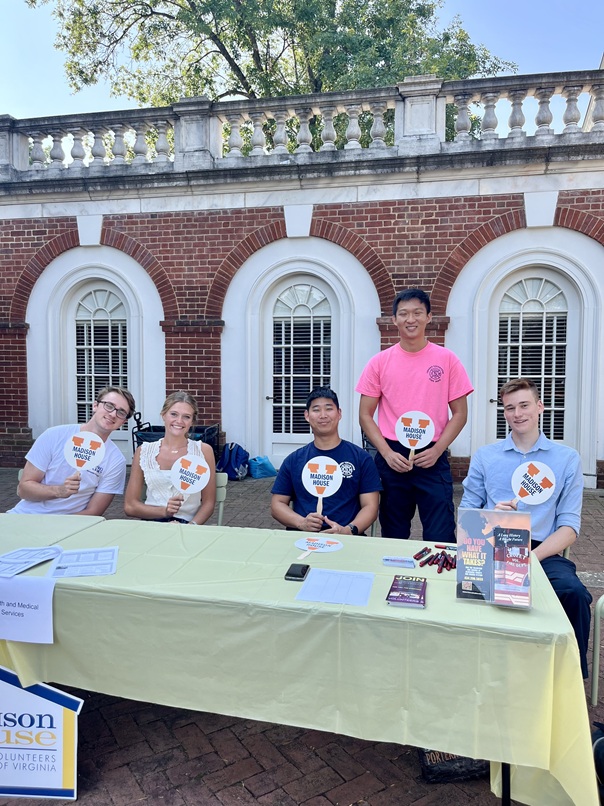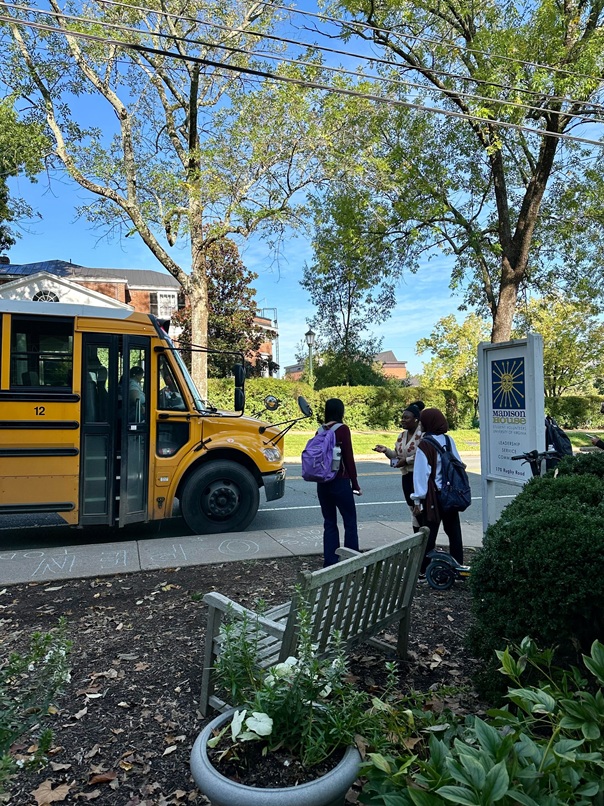
Madison House: UVA Volunteers Making a Difference for Kids
Madison House, an independent nonprofit at the University of Virginia, serves as a vital volunteer center, channeling the compassion of UVA students into meaningful service for Charlottesville’s children. These young volunteers dedicate their time and energy to supporting local youth, driven not by academic credit or personal gain but by a genuine desire to make a difference. Recently awarded a Kars4Kids small grant, Madison House continues to empower students to connect with the community, offering their skills and care to kids who benefit from their presence and commitment.
The heart of Madison House lies in its student-led approach, where UVA volunteers take ownership of their service, thoughtfully engaging with local youth to address community needs. From one-on-one mentorship to hands-on support, these students build meaningful connections with children, finding fulfillment in the simple act of giving back. Their work reflects a deep commitment to service, proving that small, heartfelt efforts can leave a lasting impact on young lives.
We put some questions to Madison House Senior Director of Advancement Allison D. M. Reed to learn more about this work:
Kars4Kids: Madison House is an independent nonprofit serving as a volunteer center for students at the University of Virginia. What motivates UVA students to get involved with the Charlottesville community through volunteer work? Do they receive college credits for taking part in your volunteer opportunities?
Allison Reed: Students at UVA get involved with Madison House for a variety of meaningful reasons. Many are looking to feel more connected to the Charlottesville community and engage with life beyond the university campus. Others volunteer to gain experience in their field of interest—for example, pre-health students often volunteer at the hospital to build relevant skills. Some are looking to develop abilities that aren’t typically taught in a classroom, or they want to apply personal passions and interests that go beyond their major. And, of course, many are simply driven by a genuine desire to give back.
It’s important to note that students do not receive academic credit for volunteering through Madison House. We’re an independent nonprofit that operates as a true volunteer center—our students participate because they care and want to make a difference.
Kars4Kids: Volunteers often serve to fill critical gaps in services. Where are your education and youth services volunteers needed most? Why, and in what capacity?
Allison Reed: Our Education & Youth service programs help address the pressing needs of schools, child care centers, and other youth-serving organizations in our region. Teachers, caregivers, and coaches play a vital role in helping children learn, grow, and explore. Unfortunately, these organizations are experiencing a staffing crisis that hinders their ability to effectively serve children and their families. For example, in a 2022 study, 66% of publicly-funded child care centers in Virginia reported serving fewer children and/or turning families away due to staffing problems, and nearly half reported closing classrooms. As recently as March 3, 2025, a state report found that Virginia schools continue to struggle to fill critical teaching positions, particularly for elementary, special education, and middle school instruction. Children from low-income families are disproportionately impacted by such challenges, as youth-serving organizations in low-income areas tend to experience the most severe staffing shortages.
Through Madison House Education & Youth service placements, UVA student volunteers provide tutoring, mentoring, classroom assistance, coaching, childcare, and other forms of support for area youth and their families. This volunteer service expands the capacity and reach of schools, child care centers, and youth organizations, providing extra support for an overwhelmed education system and under-resourced community partners. UVA students, in turn, gain hands-on experience to enrich their understanding of careers in education or social services.
Through partnerships with over 25 schools, child care centers, afterschool programs, and other community organizations, Madison House Education & Youth programs provide support for thousands of children from six weeks old through high school, with a special emphasis on reaching children living in poverty and children whose first language is not English.
Kars4Kids: Coordinating volunteers for education and youth programs comes with challenges, like ensuring effective placements or meeting community needs. What’s one hurdle Madison House faces, and how might the Kars4Kids grant help overcome it?
Allison Reed: Coordinating volunteer placements is like solving a giant jigsaw puzzle. We conduct needs assessments to determine when teachers require assistance during the school day and balance these needs with the university class schedules of our student tutors. Additionally, managing transportation to get students to schools throughout the community is a challenge. Fortunately, a local school system partner has begun offering bus transportation for our volunteers, ensuring they can get from UVA Grounds to schools where they’re needed most. With grant assistance from Kars4Kids, we will be able to support a graduate assistant advisor position to help oversee and streamline assessments and placements, as well as the logistics of the bus route.
Kars4Kids: Some of your volunteers are part of a walking bus project. We’re guessing these volunteers are early risers! Aside from getting up early enough to walk kids to school, what other qualifications do you require from your Walking Bus volunteers and what are their specific duties?
Allison Reed: Yes, the Walking Bus volunteers are definitely early risers—but that’s just one part of the commitment! Madison House’s Walking Bus Program places UVA student volunteers at Summit (formerly Clark) and Trailblazer (formerly Venable) Elementary Schools to walk with students to school each weekday morning. More than just morning people, these volunteers are dedicated, responsible, and committed to student safety and wellbeing.
Aside from being up and ready before sunrise, Walking Bus volunteers must be dependable and enthusiastic about working with children. They serve as consistent and friendly faces for students, helping them start their school day on a positive note. Volunteers are expected to be punctual, as the timing of the walks is crucial, and they must be able to walk in all weather conditions. Thanks to a recent grant, volunteers are now equipped with umbrellas and other cold-weather gear to help them and the students stay warm and dry on chilly mornings.
Their duties include: escorting groups of elementary students from their neighborhoods to school safely and on time; building rapport with the children, often becoming trusted mentors and role models; supporting the schools and easing the burden on teachers and administrators by helping ensure students arrive ready to learn; promoting equity in transportation, especially for students whose families don’t have the resources to provide rides to school.
The Walking Bus Program was launched in 2022 in response to a bus driver shortage that disproportionately impacted families without access to private transportation. It specifically supports students living in subsidized housing who might otherwise struggle to get to school. The program provides not only a safe and reliable route to education but also fosters community, physical activity, and a joyful start to the day—complete with the occasional Takis-eating contest at 7am!

Kars4Kids: Madison House supplies volunteers to the GEMS program, which inspires young girls in math and science. How do your volunteers contribute to sparking curiosity and empowering participants in this STEM initiative? Are your volunteers working with other programs that serve to empower girls—if so can you describe these programs and the part your volunteers play in carrying out the mission of encouraging girls to feel more comfortable in tackling new skills? Why does Madison House work with these programs? Are they popular with your volunteers?
Allison Reed: Madison House volunteers play a pivotal role in the GEMS (Girls Excited about Math and Science) program, which aims to inspire elementary school girls in the Charlottesville area to develop a passion for STEM subjects. Operating in four local schools—Agnor Elementary, Mountain View Elementary, Murray Elementary, and Woodbrook Elementary—through the Albemarle County Public Schools’ Extended Day Enrichment Program (EDEP), GEMS provides weekly, volunteer-led science lessons and interactive activities designed to spark curiosity and build confidence in young learners.
Madison House volunteers serve in two key roles: in-person instructors and lesson planners. In-person volunteers visit schools every Friday to lead engaging, hands-on STEM lessons for groups of 10–20 girls. These sessions often feature creative activities such as building coral reef ecosystems out of play-doh or crafting paper airplanes to explore concepts like force and motion. Volunteers are encouraged to design lessons around topics they are passionate about, which helps convey genuine enthusiasm and fosters a deeper connection with the students.
Lesson planner volunteers support the program by developing educational content and activities, even if they don’t participate in classroom sessions. This dual-structure allows volunteers to contribute in ways that align with their strengths and schedules.
By providing early exposure to STEM subjects in a fun and supportive setting, GEMS addresses the gender gap in science and math fields. The program encourages girls to see themselves as capable scientists and mathematicians, fostering self-confidence and a lasting interest in these areas.
GEMS is a popular program among Madison House volunteers – the opportunity to inspire young girls and make a tangible impact in their community resonates deeply with volunteers, contributing to the program’s success and sustainability.
The only other education and youth program that directly works with young girls is ‘Girls on the Run.’
Kars4Kids: Beyond the walking bus and girl empowerment programs, your volunteer slide presentation showcases a range of opportunities within education and youth programs. Can you highlight one unique volunteer role or initiative that’s making a big difference for kids, and what sets it apart?
Allison Reed: One standout initiative at Madison House making a significant impact on children’s lives is the SPLASH program—Swimming Protects Lives and Sparks Hope. This volunteer-driven effort teaches essential swimming and water safety skills to children in the Charlottesville community, focusing particularly on those who are differently abled, non-native English speakers, have a fear of water, or face financial barriers to traditional swim lessons.
In collaboration with the Ben Hair Just Swim for Life Foundation, SPLASH volunteers provide low- to no-cost swim lessons at local facilities like Crow Recreation Center and ACAC Fitness & Wellness Center. Volunteers actively engage in the water, coaching and assisting children to build confidence and competence in swimming. The program not only imparts a potentially life-saving skill but also fosters self-assurance and resilience in young learners.
What sets SPLASH apart is its dual focus on safety and empowerment. By equipping children with swimming abilities, the program addresses a critical public health need while simultaneously boosting the children’s self-esteem and courage to overcome challenges. As Co-Program Director Lily Liau notes, witnessing a child conquer a fear or master a new skill, such as floating on their back or jumping into the deep end, is profoundly rewarding and underscores the program’s transformative impact.
SPLASH exemplifies Madison House’s commitment to community engagement and student leadership, offering UVA volunteers a meaningful avenue to contribute to children’s well-being and development.
Kars4Kids: What makes your volunteer-matching model so effective in helping community youth programs thrive?
Allison Reed: Our volunteer-matching model is highly effective due to its unique student-led approach. UVA students take charge of the matching process, leveraging their understanding of both the student volunteers and the community’s needs. This self-governance fosters a sense of ownership and responsibility, ensuring that volunteers are thoughtfully paired with programs where they can make the most impact. By actively participating in the matching process, students develop leadership skills and a deeper connection to the community. This hands-on involvement not only enhances the effectiveness of the volunteer placements but also inspires a lasting commitment to service.

Kars4Kids: Can you share a story of a young person in Charlottesville whose life was touched by a program supported by Madison House volunteers? How does this success story prove the importance of Madison House and the work done by its volunteers?
Allison Reed: To protect the privacy of the children we serve, we don’t often share individual stories publicly. However, one story that has always stayed with me came from a UVA alumnus who was once a participant in the Big Brothers Big Sisters program supported by Madison House in the 1990s. Growing up in a single-parent household, he formed deep and lasting relationships with several Madison House “Big Brothers.” As each student graduated, he was introduced to a new mentor—often passed along through a close-knit group of friends. Those bonds endured well beyond childhood. In fact, he remained close with many of them into adulthood, and even lived with one of his former “Big Brothers” in San Francisco years later. Today, he lives abroad, works in education, and continues to study and write about the impacts of youth mentoring—proof of the lasting impact those early connections can have.
Another favorite memory comes from our annual June Reunions event, held in partnership with UVA Reunions. A UVA alumnus who volunteered through our education and youth track showed up with his “Little Brother” from decades ago, still connected after all that time. Stories like these remind us how powerful and enduring the relationships built through Madison House programs can be. Our volunteers aren’t just filling short-term needs—they’re making a lifelong difference.
Kars4Kids: Your programs shape not only the kids you serve but also the volunteers who mentor and tutor them. How do these experiences inspire UVA students to carry a commitment to youth and education into their futures?
Allison Reed: Our mentoring and tutoring programs profoundly impact UVA students. By volunteering with our partner organizations, students immerse themselves in the community they call home during the academic year. They work hand-in-hand with partners to address community priorities and make positive contributions. Students tell us these experiences cement a lifelong commitment to service. Seeing the kids they mentor grow and succeed fills them with joy and purpose. This journey shapes their future careers and personal growth, providing essential leadership skills and real-world experience.

Kars4Kids: Looking ahead, what’s Madison House’s vision for supporting education and youth programs through volunteer placements? How do you hope to deepen your impact and motivate volunteers to champion youth development for years to come?
Allison Reed: The pandemic had a significant impact on our ability to offer a wide range of placements in education and youth programs. Many of our community partners had to pause services, and we’ve been working to rebuild those connections and opportunities. That said, there’s a strong and growing interest among UVA students to engage with local youth and make a positive impact. Our vision moving forward is to meet that demand by expanding and deepening our partnerships, all while ensuring that the placements we offer are meaningful and responsive to the needs of the community. We’re committed to fostering long-term relationships and creating high-quality experiences that not only support youth development but also inspire our volunteers to stay engaged in service well beyond their time at UVA.